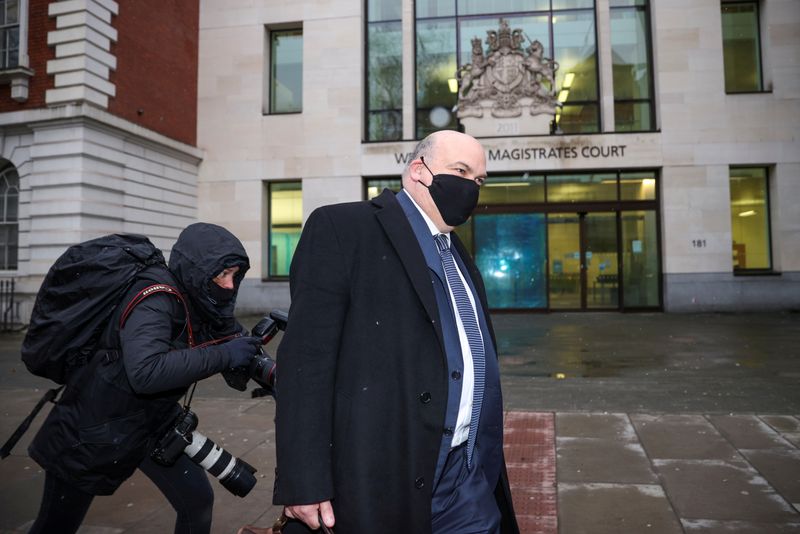LONDON (Reuters) - Hewlett-Packard lost more than $4 billion over its acquisition of British software firm Autonomy because of an elaborate fraud masterminded by its co-founder Mike Lynch to inflate the company's value, HP (NYSE:HPQ)'s lawyers told a London court on Monday.
HP is seeking to recoup losses in a lawsuit brought against Lynch, once hailed as Britain's answer to Bill Gates, and Autonomy's former chief financial officer, Sushovan Hussain.
The U.S. technology giant bought Autonomy for $11.1 billion in 2011, in one of the UK's biggest tech deals. But the deal spectacularly unravelled, with HP writing down Autonomy's value by $8.8 billion within a year.
Following one of the longest civil trials in English legal history, HP in 2022 substantially won its case, though a High Court judge said any damages would be significantly less than the $5 billion HP had claimed.
HP's lawyers argued on Monday that its losses resulting from the fraud entitle it to about $4 billion.
But Lynch – who last year was extradited to the United States to face criminal charges over the deal, with a trial due to start next month – argues HP suffered no real loss. He denies any wrongdoing.
His lawyer David Wolfson said in court filings that the price HP would have paid "would not have been materially different", in part because of Autonomy's unique technology and HP's strategic rationale for the acquisition.

Lynch intends to seek permission to appeal against the 2022 ruling, which has been delayed until after the determination of damages, his lawyers previously said.
Lawyers representing Hussain, who was convicted of fraud in the U.S. and sentenced to five years in prison in 2019, said he agreed with Lynch's case.